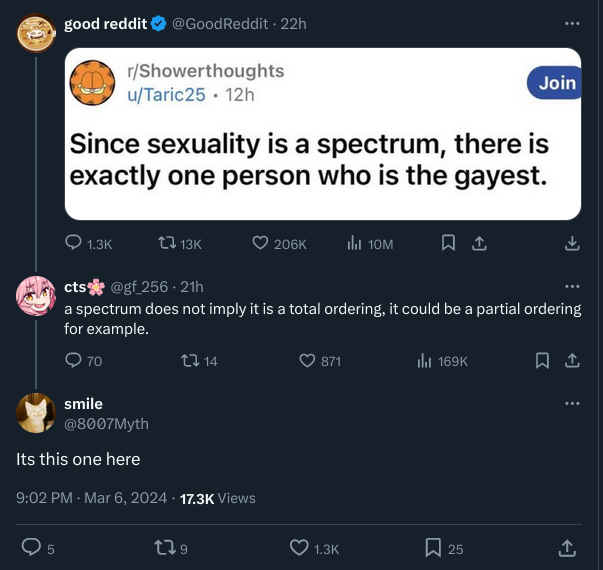this post was submitted on 27 May 2024
967 points (100.0% liked)
196
16845 readers
2679 users here now
Be sure to follow the rule before you head out.
Rule: You must post before you leave.
founded 2 years ago
MODERATORS
you are viewing a single comment's thread
view the rest of the comments
view the rest of the comments

you could think about it this way: one sphere and two spheres have the same “number” of points. (in the same way that there are just as many real numbers as there are real numbers in the interval (0,1).)
so, it becomes “”plausible”” that you could use one sphere to construct two spheres (because in some sense, you aren’t “adding any new points”).
but in the real world, “spheres” only have a finite number of atoms. so if we regard atoms as “points”, then it’s no longer true that one sphere and two spheres have the same number of “points”. and in some sense, this is why the sphere duplication trick doesn’t work in the real world.
it’s also worth mentioning that you have to do some pretty fucked up and unusual things in order to actually duplicate the sphere, and if you don’t allow such weird things to be done to the sphere, then it’s no longer possible to duplicate it, even with the axiom of choice.